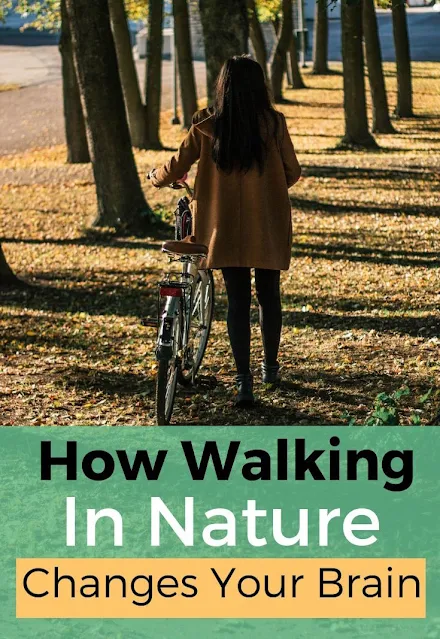The majority of people in the Western world live in busy, congested cities. Many of us have been completely cut off from nature in our day-to-day lives, especially compared to the generations before us. There have been many studies showing that city dwellers are much more likely to suffer from depression and other forms of anxiety than people who live in more natural, rural areas.
This may seem obvious to some, since the feeling we get from going for a walk through a park or forest, going camping, or just getting out of the city in general is so refreshing and generally very relaxing. But new research is proving just how important getting out of the city and into nature can be for our mental and physical well-being.
Can Being In Nature Actually Change Our Brains In A Way That Positively Impacts Our Health?
Gregory Bratman, a graduate student at the Emmett Interdisciplinary Program in Environment and Resources at Stanford University, wanted to find out. Researchers conducted a study which asked randomly selected participants to spend 50 minutes walking in either a natural or urban setting, and to submit to a series of psychological assessments before and after the walk. They found that volunteers who walked through a lush, green portion of Stanford campus showed improve cognitive function and mood compared to those who walked near heavy traffic for the same period of time. However, while this study showed that nature could have a positive effect on mental well-being, it did not examine the neurological mechanisms underlying this change.
Does Walking In Nature Affect A Person’s Tendency To Brood?
Brooding is a state of constant worry and stress about everyday things in our lives. This type of thinking is not healthy or helpful and is actually detrimental to our overall mental health. In many cases, these thinking tendencies act as a precursor to depression. Not surprisingly, brooding is much more common to people who live in cities than to rural dwellers.
This sort of rumination is strongly associated with increased activity in an area in the brain known as the subgenual prefrontal cortex. This sparked the interest of Bratman and his colleagues because it was something they could measure, particularly before and after exposure to nature. Thus began a second study.
38 healthy adult city dwellers were gathered and asked to complete a questionnaire to determine how frequently they were brooding. Then researchers took brain scans that measure the blood flow that was passing through each person’s subgenual prefrontal cortex. The volunteers were split into two groups: one was assigned to go for a walk through a lush, leafy, quiet park on the campus while the other was assigned to a loud, multi lane highway with busy traffic. Neither of the groups were allowed to walk in pairs or listen to music during the exercise.
As soon as they completed the exercise they returned to the lab and answered the same questionnaire, then had their brains scanned again.
The results were as to be expected – the group who walked along the highway still had increased levels of blood flow to their subgenual prefrontal cortex and their broodiness scores were unchanged. The group who walked amongst nature, on the other hand, showed very meaningful improvements in their mental well-being. They were not dwelling on as many aspects of their lives and less blood was flowing to their subgenual prefrontal cortex. Indeed, this area of the brain appeared quieter.
The Results
The results of this study “strongly suggest that getting out into natural environments” could be a simple, effective, and almost immediate way to improve moods for those who dwell in cities, Mr. Bratman said.
Try It Out For Yourself
Really, you have nothing to lose here, if you find yourself feeling stressed out and are worrying regularly, or even if you are not, get out there. Spend at least a little time outside each day – go for a nice walk in a park or find a quiet area near you to relax. Try to get out of the city for a short amount of time every week. Give it a shot and keep track of your mood and your thoughts, this could be the answer to your problems! Nature really is a good thing.
Much Love
Sources are embedded within this article.
Original Article: CE
